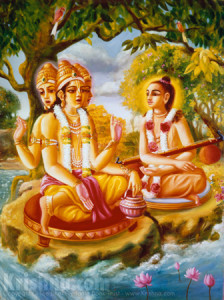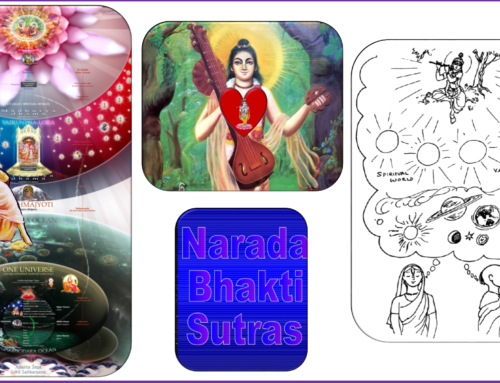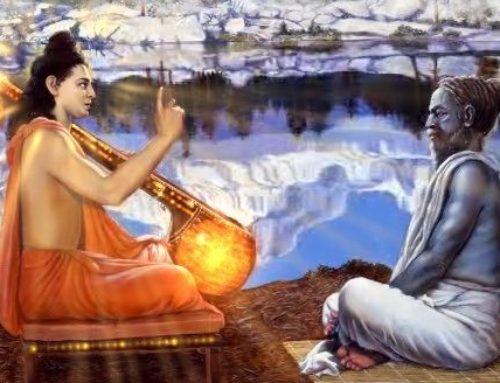Source: SB 2.5.7
Nārada Muni accepted Brahmā as the Supreme due to Lord Brahmā’s wonderful acts in  creation, but doubts arose in him when he saw that Lord Brahmā also worshiped some superior authority. The Supreme is supreme, and He has no worshipable superior. The ahaṅgrahopāsitā, or the one who worships himself with the idea of becoming God Himself, is misleading, but the intelligent disciple can at once detect that the Supreme God does not need to worship anyone, including Himself, in order to become God. Ahaṅgrahopāsanā may be one of the processes for transcendental realization, but the ahaṅgrahopāsitā can never be God Himself. No one becomes God by undergoing a process of transcendental realization. Nārada Muni thought of Brahmājī as the Supreme Person, but when he saw Brahmājī engaged in the process of transcendental realization, doubts arose in him. So he wanted to be clearly informed.
creation, but doubts arose in him when he saw that Lord Brahmā also worshiped some superior authority. The Supreme is supreme, and He has no worshipable superior. The ahaṅgrahopāsitā, or the one who worships himself with the idea of becoming God Himself, is misleading, but the intelligent disciple can at once detect that the Supreme God does not need to worship anyone, including Himself, in order to become God. Ahaṅgrahopāsanā may be one of the processes for transcendental realization, but the ahaṅgrahopāsitā can never be God Himself. No one becomes God by undergoing a process of transcendental realization. Nārada Muni thought of Brahmājī as the Supreme Person, but when he saw Brahmājī engaged in the process of transcendental realization, doubts arose in him. So he wanted to be clearly informed.




